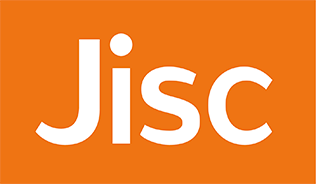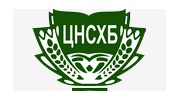The Russian Peasant Studies adheres to the internationally recognized ethical regulations of research and publishing activities as described by international organizations (International Sociological Association and Committee on Publication Ethics). Once Author sends a manuscript s/he confirms that the research has been carried out and the paper has been written in accordance with Ethical Guidelines.
The editorial staff members expect that in their daily activities all the participants of the publishing process follow the rules and guidelines accepted by the global academic community.
Duties of Editor-in-Chief and Editorial Board members
Editor-in-Chief makes the final decision regarding the publication of a submitted manuscript. Editor-in-Chief may consider opinions of the editorial board members and take into account their views regarding any submission. If a submitted manuscript fits the thematic framework and meets the formal requirements of the Journal, Editor-in-Chief must send it to two reviewers without disclosing the personal information of Author(s). The decision regarding a manuscript should take into account the reviewers’ comments. Normally, book reviews, reports on academic events, obituaries and other biographical notes are not peer-reviewed. Making the final decision, Editor-in-Chief cannot take into account any extra-academic reasons including (but not limited to) gender, sex, race, ethnicity, political preferences of author(s).
Editorial staff members are fully responsible for the publishing process.
In case any third party makes a written request to share the materials of the publishing process, Editor-in-Chief has to consider it and to arrive at a proper decision and inform all the involved parties about the decision. Editorial staff members keep the reviews for no less than five years.
Duties of Reviewers
The main duty is to inform the decision of Editor-in-Chief by providing the comments regarding the academic quality of a submitted manuscript. If Reviewer doubts her/his expertise and ability to provide grounded and valuable comments for professional reasons, s/he should inform Editor-in-Chief and decline the invitation to review a manuscript. Reviewer should not disclose or use any information from a submitted manuscript, or send it to any third parties unless allowed by Editor-in-Chief. In the review Reviewer has to clearly indicate the strong and weak sides of a manuscript and, if necessary, suggest the ways to improve it. If Reviewer discovers (or even suspects) plagiarism, s/he should immediately inform Editor-in-Chief and provide available evidence for further investigation. In case of conflict of interests, Reviewer has to inform Editor-in-Chief and decline the invitation to review.
Duties of Authors
Submitted manuscript should be a product of original research carried out in accordance with Ethical Guidelines. Author(s) should indicate all the sources (including her/his own) and follow the required guidelines. If any materials or ideas have already been published in other places (including in different languages), Author(s) should indicate this fact in references and/or provide the description of sources. Author(s) should not submit materials with the results already published in more than one publication. The list of authors should include any scholars whose contribution to the production of the manuscript may be considered significant. Including the names of other people is not permitted. In case there has been discovered a mistake in already published paper, Author(s) should inform Editor-in-Chief and they together work out the way to correct it and/or inform the audience. Author(s) should also indicate the financial sources, which may have impact upon collected data and its interpretation.
Copyright
The copyright belongs to the Author(s). We require that once published material in our Journal is not published again without a notice. In addition, Author(s) should make sure that in all the subsequent publications there is an indication of the initial publication in the Review. The journal insists that Author(s) provide full details about the publication in Russian Peasant Studies if posting online, sharing, or distributing their articles.
Plagiarism
The Journal watches closely the facts of plagiarism in submissions and therefore we strongly advise authors that they follow the Journal's manuscript requirements regarding citations and bibliography and that they also indicate all the authors of the submitted materials. Our editorial board and reviewers follow strict policy regarding plagiarism. If plagiarism is discovered in submitted materials, the Journal refuses to consider all subsequent materials of author(s) in question.
Journal follows ethic standards by Committee on Publication Ethics (see at https://publicationethics.org). Submitting the article for Peasant Studies, the Author confirms that his (her) job does not broke standard's requirements.
The Journal can use native russian-language plagiarism detection software Antiplagiat to screen the submissions. English-language manuscripts are additionally may be checked in the plagiarism checker software "iThenticate".
Retraction policy
In situations related to the withdrawal of articles, the editorial board and the publisher of the « » are guided by the recommendations of the COPE Retraction Guidelines and Rule of Retraction of an article from publication of the AIRP Council of Ethics.
In situations related to the withdrawal of articles, the editorial board and the publisher of the « Russian Peasant Studies » are guided by the recommendations of the COPE Retraction Guidelines and Rule of Retraction of an article from publication of the AIRP Council of Ethics.
Articles published in the “Russian Peasant Studies” journal may be subject to retraction (withdrawal from the press). The retraction is carried out in order to notify readers about the publication of unreliable information and to withdraw such publications from scientific circulation.
Retraction is used in cases where an already published article:
- violates the publication ethics of the journal;
- contains plagiarism or self-plagiarism;
- is a duplicate publication;
- contains serious errors or falsified data that question the reliability of scientific results;
- republished without the consent of the author (authors); 6) includes materials whose content contradicts the legislation of the Russian Federation.
The refutation is carried out regardless of whether the actions of the authors that led to the publication of false information were intentional or the result of misconception.
Retraction can be made at the request of the authors, by the decision of the editorial board or at the official request of various bodies (other journals, scientific organizations, etc.), the appeal of third parties (with evidence of violations of scientific ethics by the author of the article published in the journal).
Retraction is carried out after a thorough check of the circumstances that led to the publication of inaccurate information. The decision is made by a specially created commission, taking into account all available facts and the possibilities of checking the publication for compliance with the requirements.
The editorial board notifies the author (authors) of the violation of publication ethics and launches the retraction procedure. The author(s) are allowed to express their consent or disagreement with the Editorial Board. In cases where the fact of violation of publication ethics (plagiarism, self-plagiarism, falsification of data, violation of legislation, etc.) has been confirmed, the Editorial Board has the right to carry out a retraction procedure without the consent of the author (authors).
On the basis of the verification of the circumstances that led to the retraction, the editorial board has the right to independently decide on further cooperation with the author (authors) of the withdrawn articles (complete refusal of cooperation, refusal of cooperation for a certain period, appointment of additional examination of the articles in case of repeated cooperation).
The article that has been retractioned is not deleted from the electronic version and remains on the journal’s website as part of the PDF version of the corresponding issue. At the same time, the metadata of the article is marked “Retracted” and the date of the retraction. An identical mark is placed in the table of contents of the corresponding issue of the journal and the databases in which the journal is indexed.
Policy on handling appeals and complaints
Upon receipt of appeals and complaints from authors and co-authors, the editorial board interacts with the Authors of the manuscript or published article and considers the arguments for the relevant complaint or appeal. If necessary, the editorial board interacts with the relevant organizations and research centers.
























